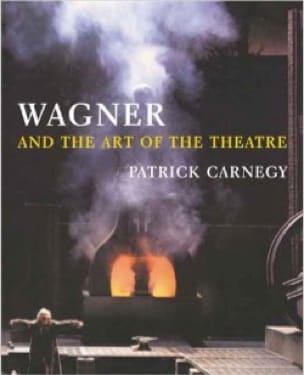 | Wagner and the art of the theatre
Patrick CARNEGY
Livre - BrochéYale University Press
 9780300197150 9780300197150
480 p., 6.50 (w) x 9.70 (h) x 1.00 (d) - New Haven - 2013
| | 24.00 € | EN STOCK
| • 30 jours pour changer d'avis ! | • Avis clients | |   |
|
The production of Wagner’s operas is fiercely debated. In this groundbreaking stage history Patrick Carnegy vividly evokes the—often scandalous—great productions that have left their mark not only on our understanding of Wagner but on modern theatre as a whole. He examines the way in which Wagner himself staged his works, showing that the composer remained dissatisfied with even the best of his productions.
After Wagner’s death the scenic challenge was taken up by the Swiss visionary Adolphe Appia, by Gustav Mahler and Alfred Roller in Vienna, and by Otto Klemperer and Ewald Dülberg in Berlin. In Russia the Bolsheviks reinvented Wagner as a social revolutionary, while cinema left its indelible imprint on the Wagnerian stage with Eisenstein’s Die Walküre in Moscow in 1940.
Hitler famously appropriated Wagner for his own ends. Patrick Carnegy unscrambles the interaction of politics and stage production, describing how post-war German directors sought a way to bury the uncomfortable past. The book concludes with a critique of the iconoclastic interpretations by Patrice Chéreau, Ruth Berghaus, and Hans-Jürgen Syberberg.
|
  | | |
| |
